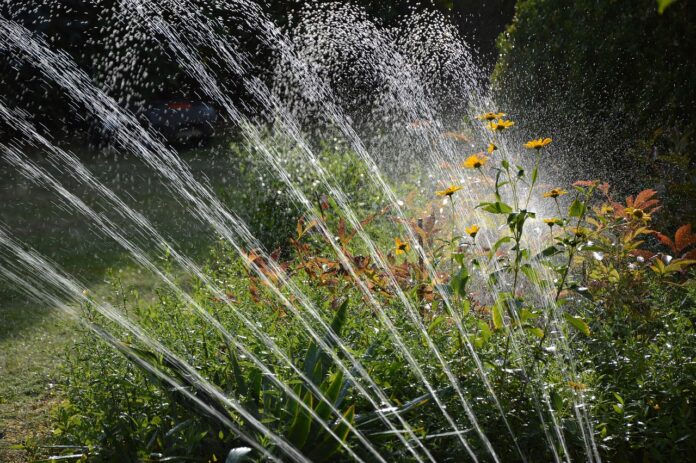Maintaining a lush, beautiful landscape is an art that demands time, patience, and a profound understanding of your garden’s unique needs. While diverse factors contribute to the health and beauty of a landscape, proper irrigation takes the lead, particularly during the warm, dry summer months.
Ontario’s summer climate, characterized by hot days and occasional rainfalls, adds a unique challenge to landscape maintenance. This article aims to provide practical, efficient irrigation tips tailored to Ontario’s unique summer climate.
Understanding Ontario’s Summer Climate
Ontario’s summer climate exhibits a unique combination of warmth and unpredictability.
During the summer, the province experiences a broad spectrum of weather patterns. Temperatures can swing from comfortably mild to scorching hot within a matter of days, with occasional rainfalls interspersed among prolonged dry spells.
These fluctuating conditions necessitate a dynamic approach to landscape irrigation, when temperatures soar and rainfall is scarce, garden plants and lawns can quickly dehydrate, leading to wilting or browning. Conversely, sudden bouts of rain can saturate the ground, making additional watering redundant and potentially harmful to the health of the plants.
An essential part of maintaining a beautiful Ontario landscape in the summer is continuously adapting to these shifting weather patterns. Careful attention to changes in temperature, precipitation, and soil moisture can guide timely adjustments to irrigation practices.
This enables you to ensure that your plants receive the right amount of water, maximizing their health and aesthetic appeal regardless of the summer’s capricious climate swings.
Importance of Efficient Irrigation
Before diving into the heart of the topic, it’s important to understand irrigation first. What is irrigation?
Irrigation refers to the artificial application of water to soil or land to assist in the growth of crops and vegetation. In the context of home gardening and landscape maintenance, irrigation involves the methods you employ to provide water to your plants, which could include everything from manual watering with a hose to automated sprinkler systems.
Now, why is efficient irrigation so crucial?
- It directly contributes to the health and vibrancy of your landscape. Every plant species has its specific watering needs, and by meeting these requirements precisely, you ensure optimal growth and resilience in your plants. Overwatering can lead to waterlogged soil and root disease, while underwatering can cause wilting and eventual plant death. Effective irrigation strikes the balance, providing just the right amount of water for each plant.
- Efficient irrigation is a practice of environmental responsibility. Freshwater is a precious resource, and its conservation is increasingly critical in today’s changing climate. By applying water only as needed and reducing wastage from runoff and evaporation, efficient irrigation practices help conserve this vital resource.
- It has economic benefits, especially during the summer months when irrigation needs increase, water bills can climb significantly. Adopting efficient irrigation techniques can maintain the beauty of your landscape while keeping water usage—and therefore costs—to a minimum.
Assessing Your Landscape’s Watering Needs
Every landscape is unique, with specific watering needs depending on the types of plants, soil composition, and sun exposure. Most native Ontario plants are adapted to the region’s climate and require less watering than exotic species.
Furthermore, soil type significantly affects water retention—sandy soils drain quickly and may require more frequent watering, while clay soils retain water longer. Regularly assessing these factors throughout the summer can help you adjust your watering schedule as conditions change.
Tips for Efficient Summer Irrigation
Maintaining a beautiful landscape during an Ontario summer demands not just watering your plants, but doing so strategically. Here are some tips that can guide you towards efficient summer irrigation:
- Irrigation Techniques: The method you use to water your plants can significantly impact their water absorption and overall health. Traditional watering methods, like manual watering, can lead to uneven water distribution and waste due to runoff and evaporation. Implementing efficient irrigation techniques such as drip irrigation or soaker hoses can deliver water directly to the plant roots, reducing evaporation and promoting better water absorption. These methods ensure that more of the water you use is actually taken up by your plants and put to good use.
- Timing is Everything: The time of day you choose to water your plants can have a big impact on water usage efficiency. During the heat of the day, water can evaporate quickly, reducing the amount that actually reaches the plant roots. Watering during the cooler parts of the day, such as early morning or late evening, can significantly reduce evaporation, ensuring more water reaches your plants.
- Adapting to Rain or Drought: Ontario’s summer climate can fluctuate between rainy and drought conditions. Keeping a close eye on the weather forecast can help you adapt your watering schedule accordingly. If heavy rain is expected, you can reduce or even skip watering. Conversely, during extended periods of hot, dry weather, additional watering may be necessary to keep your landscape healthy.
- Regular Maintenance: An often overlooked aspect of efficient irrigation is the regular maintenance of your irrigation system. Over time, irrigation systems can develop leaks or become less effective due to wear and tear. Regularly checking and maintaining your irrigation systems can prevent leaks and ensure efficient water usage.
- Smart Irrigation Technologies: Modern technology offers an array of smart irrigation systems that can take a lot of the guesswork out of watering. These systems use real-time weather data to adjust watering schedules and quantities, ensuring your landscape gets the right amount of water, no matter the weather. While there is an upfront cost, the long-term water savings can make these systems a worthy investment for the diligent gardener.
Conclusion
The key to a beautiful Ontario landscape in summer lies in efficient, mindful irrigation. By understanding your landscape’s unique needs and the effects of Ontario’s summer climate, you can adapt your watering strategies to conserve water, save money, and keep your landscape lush and healthy.
We encourage you to implement these tips and continue exploring best practices for effective landscape management in Ontario.


